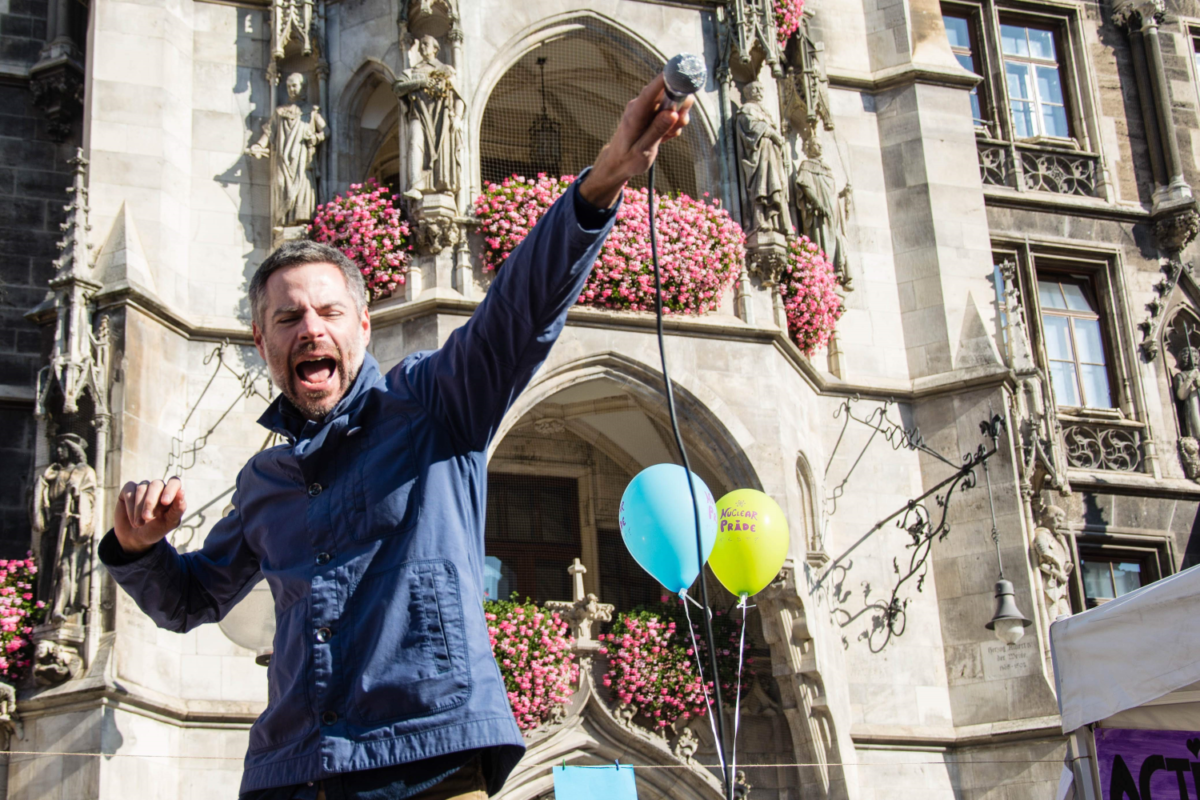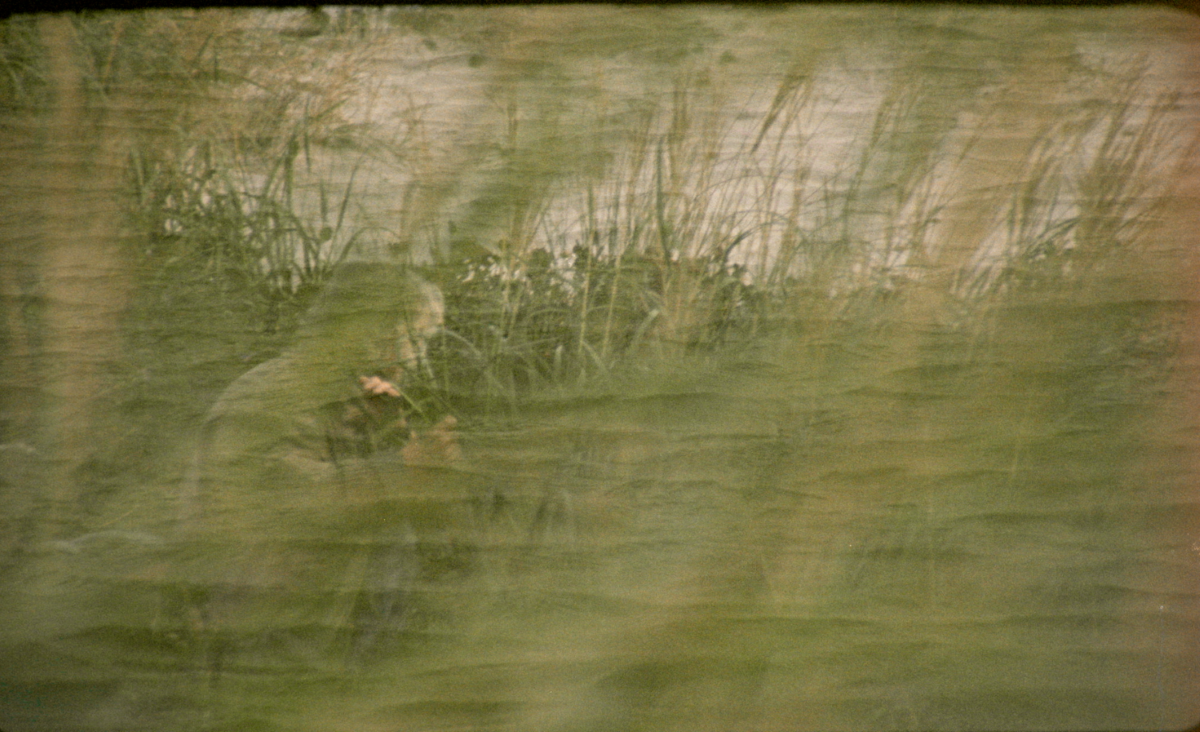Atomic Hope: Inside the Pro-Nuclear Movement is as provocative as it is perturbing, as topical as it is troublesome. The documentary directed by Irish filmmaker Frankie Fenton has its world premiere at Hot Docs within the Changing Face of Europe, but its urgency is global. Atomic Hope considers the debate for nuclear energy as the world looks for alternatives to fossil fuels amid the growing climate crisis. Fenton follows activists and scientists who fuel the argument that nuclear energy is the safest and cleanest energy. However, the film acknowledges the stigma about atomic energy after Homer Simpson’s buffoonery at the helm of a power plant left audiences with shaky perceptions of the safety of nuclear power. Disasters like Chernobyl, meanwhile, endure as synonymous with nuclear power for a generation, while others may struggle to reconcile the benefits of nuclear power amid armaments.
The activists and scientists in Atomic Hope, meanwhile, might surprise audiences. Some of them use jingles and hokey songs to persuade the masses, while others favour facts and figures. The film gives them a platform to share their perspective, while acknowledging that this is one side of a volatile debate. At the same time, Fenton observes as these voices are shut out from climate summits. How many lives lost in Chernobyl or how many fears akin to Fukushima are worth the cost of going nuclear is a question that Atomic Hope leaves to viewers.
This provocative film leaves no easy answers. Atomic Hope might persuade you, it might terrify you—and for anyone going into the film undecided about nuclear power, it could very well do both. Fenton doesn’t aim to answer the question, but instead lets audiences hear from voices who fear the greater cost of doing nothing.
POV spoke with Frankie Fenton via Zoom ahead of Atomic Hope’s premiere at Hot Docs.
POV: Patrick Mullen
FF: Frankie Fenton
This review has been edited for brevity and clarity.
POV: Did this project come together as you met some of the characters, or were you making a documentary about the nuclear debate and found people who spoke to the issue?
FF: It actually came to me in the form of an article that I read in 2009 by Richard Martin. It was for Wired magazine and it was about a new type of nuclear energy that seemed to answer a lot of the problems that we might have with it: the proliferation and the waste didn’t seem to be an issue. Some of those things were true, some of them weren’t, but I got the bug of wondering if nuclear wasn’t as bad as we thought it was. Perhaps it could be a viable option for the problems that we saw coming down the line. From there, I got in contact with most of the people who were mentioned in that article and started filming. I decided to switch my focus from making a science-based technical film to a film about activists who were trying to take the words of scientists and communicate them to a greater audience. That became a more interesting story.
POV: So this film was in production before It’s Not Yet Dark was released as your first feature in 2016?
FF: I started making this film long before It’s Not Yet Dark. However, it was tricky to sell a film about nuclear power to people, so at some point, I had to put it down. It just wasn’t getting the traction that I felt that it deserved. In the middle of all of that, I made It’s Not Yet Dark, which did enormously well, as far as documentaries go: it went to Sundance and sold in 50 countries. Having finished that film, there was more confidence in me as a filmmaker to go out and try another go at this important topic.
POV: What was the process of trying to find the right balance in the film in terms of politics or perspectives?
FF: If you type “nuclear movie” into Google, you’re going to get about 400 movies that are anti-nuclear. On the other hand, making a film that’s purely pro nuclear is a tricky story to sell and not one that I was entirely interested in, either. From my perspective as a filmmaker, I wanted to point the camera at people who had an opinion, rather than give an opinion myself. The minute I started doing that, people were engaged and could see that this was a story that was worth listening to.
POV: In the process of making the film, the mini-series Chernobyl came out and was quite popular. How do you think that affected the nuclear conversation?
FF: I think it affected it massively. The conversation was suddenly available to a new generation of people who actually grew up without the fear of nuclear power. Most people over the age of 40 have lived with this conversation, less so for people who are under 30. A huge amount of people who watched that show had no idea what Chernobyl even was or what it referenced. And what a magnificently made TV show: it’s entirely gripping and an important piece of work. However, it is a dramatization. Correct me if I’m wrong, but after making it, the producers said that they were not so much anti-nuclear, but anti- the situation of Chernobyl. [Chernobyl creator Craig Mazin wrote in a since-deleted post on Twitter, “The lesson of Chernobyl isn’t that modern nuclear power is dangerous. The lesson is that lying, arrogance and suppression of criticism is dangerous.”]
The conversation around nuclear power has been moved on since Chernobyl and climate change has changed that in a dramatic way. Now we’re confronted with a whole other set of issues that we are now confronted with this debate in a different way than we could have perceived from the Eighties. Certainly, as time has gone on, because I’ve been making this film for 13 years, a huge amount has happened including the tsunami at Fukushima. But there’s also new respect for the science, the climate scientists, and leaders regarding how our future energy policy should go.
POV: I was trying to figure out the timeframe of events, especially since there isn’t much sense of the “Trump effect” even though much of the film is in the USA. How did you navigate the increasingly polarization of American politics when you were dealing with so many American characters?
FF: I’ve had the privilege of meeting an awful lot of people around the world. We’re told time and time again that we live in polemic society, that we live in this Twitter-type world where we scream at each other across a chasm or over an abyss. I just don’t think that most people see the world that way. We are told that’s the case, but if we all agreed on the same thing, the world would not only be a boring place, but it would also be a very scary place. It isn’t hard to find people who disagree about their thoughts on nuclear power. Most people in most families will have different opinions, but it’s not to say that people need to fall out. It wasn’t necessarily something I avoided, but it was certainly something that I felt was a done story.
Right now, we need to be talking about the things that we can agree on. All I wanted to do was give a platform to people who I felt weren’t being given a fair platform. We’ve heard so much from the other side of this story, but for the most part, activists in the realm of the pro-nuclear are often called shills and are talked about derogatorily. This conversation is too important to be reduced to a petty Twitter argument.
POV: How has watching people engage in such a provocative debate prepared you for being a proxy for such a contentious issue?
FF: It’s scary to have to stand up and talk about issues that are seen to be taboo, but the conversation is far too important, so somebody has to do it. I think that’s the way the activists and the scientists in the film feel as well. It’s not easy to do. But from my perspective, I’m not a physicist, I’m not a biologist, I’m not a climate scientist, I’m a filmmaker. My job is to point a camera at things that I think need to be discussed. In one way it’s scary, but in another way, it’s important.
POV: What is the state of the nuclear debate in Ireland?
FF: It’s prohibited to make energy from nuclear power in Ireland, but we have no problem importing nuclear power from Europe or England. It’s a bit hypocritical; however, it’s understandable. As time goes on, these kinds of decisions are going to have to be discussed more coherently. When it comes to confronting the past, Ireland has a great track record in regards to things like women’s rights, the right for gay marriage, abortion. These subjects are built into how we consider ourselves Irish, but I don’t see this debate as any different.
POV: How has working on a project like this film for the better part of a decade changed how you live?
FF: I will be the first person to put my hand up and say, my house is heated by oil. I cook with gas, and I drive a diesel car. But my house is old and I have flown all over the world to make this film. For me to stand up and say “I’m an environmentalist and everybody should do as I do” would be a terrible idea. [Laughs.] I am also aware that in 27-28 years, we’re going to have 10 billion people on the planet, and by the end of the century, we’re going to have 11 billion people on the planet. In that time, our energy demand is going to double, triple, or quadruple. Self-conservation is important but we have to cut the heads off the monster first. I’m looking at the bigger picture for now and, as soon as I can afford solar panels on my roof, I’m going to put them on.
POV: I’m the same as you. My apartment has a gas furnace and water heater and I don’t have much of an option for an alternative. However, on another note, how did COVID influence your production, or the nuclear debate? It seems like the stories of COVID impact are so different this year for filmmakers.
FF: People really had to redefine what the science was when it came to getting a vaccine or wearing a mask. That conversation is going to help inform us making proper decisions about energy in the future because we’re going to listen to climate scientists and their recommendations. Otherwise, we’re going to stay in that realm of conspiracy theory and vague ideas about what’s happening in the world. In that way, I hope that we can take some positives from COVID when it comes to climate change.
Atomic Hope has its world premiere at Hot Docs on May 3.











